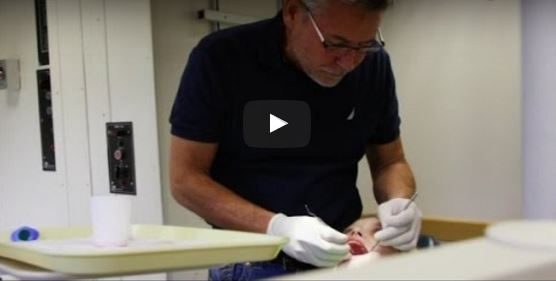A dentist in Kentucky is giving kids a reason to smile.
Dr. Edwin Smith used $150,000 of his own money to flip an 18-wheel truck into a dental clinic on wheels, The New York Times reported. The idea behind his mobile dentist office is to bring free oral care to children in need in rural regions.
Since 2005, Smith has been driving his nonprofit on-the-go, Kids First Dental Services, to schools in some of the poorest counties in Kentucky. He’s treated more than 43,000 kids along the way, which is why CNN announced in late September that Smith is one of its CNN Heroes.
“I hope none of these kids ever have poor oral health and bad teeth as a barrier to keep them from moving up in life and bettering themselves,” Smith told the outlet.
There are a number of factors that contribute to rural Kentucky’s high rate of oral health issues, many of which are rooted in higher poverty levels and lack of access to nearby dental practices.
The areas that Kids First serves are some of the poorest counties in Kentucky. For instance, in Martin County, 40 percent of the population lives in poverty, according to the U.S. Census Bureau. And in Owsley County, the rate is 45 percent.
In 2002, just three years before Smith began Kids First, the Centers for Disease Control and Prevention released a study that found that more than 42 percent of residents 65 and over in Kentucky were missing all their natural teeth — the highest percentage in the country.
Grandma had dentures, mom had dentures, it’s just inevitable that I’m going to end up with dentures, is the way some of these kids feelDr. Edwin Smith
Another problem, according to Smith, was due in part to generational attitudes toward oral health.
“Grandma had dentures, mom had dentures, it’s just inevitable that I’m going to end up with dentures, is the way some of these kids feel,” he told ABC News in 2009. “I really believe we have to do a better job educating.”
As a result, he’s taken to teaching kids better oral care by coming to them. Kids First provides a free checkup to kids including a cleaning, X-rays, fluoride treatment and sealants on molars that don’t have decay. His nonprofit cannot do any invasive procedures, but Smith provides kids with lists of dentists in their areas that can do additional work if needed. He also sends a treatment plan home with the kids, to further educate them — and their families — on proper oral hygiene.
In the video above, Smith says that the incidents of tooth decay within the schools he visits has been going down every year.
“They just know that they need to go to the dentist now,” he said. “We’re making some impact here.”
